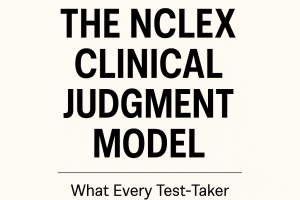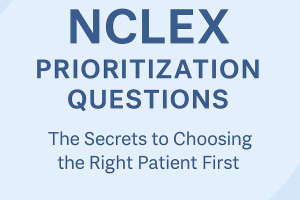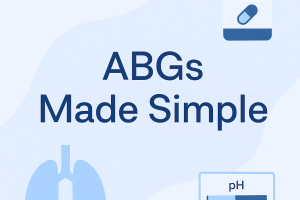NCLEX-Style Questions Breakdown: How to Analyze Each Option

Preparing for the NCLEX isn’t just about memorizing facts—it’s about knowing how to think like the test. The NCLEX is designed to test your clinical judgment, and one of the biggest challenges students face is learning how to analyze multiple-choice options.
If you’ve ever stared at a question and said, “All of these look right!” — you’re not alone. Here’s how to break down NCLEX-style questions the right way so you can confidently choose the best answer every time.
Step 1: Read the Question Stem Carefully
Before diving into the options, slow down and read the actual question. Ask yourself:
- What is the question really asking?
- Is it a priority, assessment, intervention, or safety-based question?
- Are there keywords or phrases (like “most important”, “initial”, “best”, “priority”)?
Example:
Question: A client is complaining of shortness of breath. What action should the nurse take first?
This is a priority question. Focus on what must be done first, not what is generally correct.
Step 2: Eliminate Clearly Wrong Options
Most NCLEX questions have one best answer and a couple of distractors. First, eliminate the ones that are clearly unsafe, unrelated, or inappropriate.
Look out for options that:
- Don’t relate to the client’s condition
- Violate safety or legal protocols
- Are outside of nursing scope
- Sound right but are irrelevant to the scenario
Step 3: Look for Keywords and Clues
NCLEX loves to include keywords that subtly guide you:
- “Most appropriate” means multiple answers may be right—but one is more correct based on the situation.
- “First” or “initial” means use prioritization tools (like ABCs or Maslow).
- “After administering medication” implies follow-up actions.
Use those hints to make clinical decisions like you would in real life.
Step 4: Use Prioritization Frameworks
When you’re stuck between two “okay” answers, use these frameworks to decide:
ABCs (Airway, Breathing, Circulation)
Always treat airway and breathing problems before circulation or anything else.
Maslow’s Hierarchy of Needs
- Physiological needs (food, water, air) come first.
- Then safety, love, esteem, and self-actualization.
ADPIE (Nursing Process)
- Assess
- Diagnose
- Plan
- Implement
- Evaluate
Never implement before assessing unless the question clearly states enough assessment has already occurred.
Step 5: Watch for Opposites or Absolutes
Sometimes two options are opposites. One will usually be right. Also, watch out for absolute words like:
- Always, never, must, only — These are red flags in NCLEX questions. In real clinical settings, very few things are 100% absolute.
Step 6: Compare Remaining Answers
When you narrow it down to two, ask:
- Which one directly answers the question being asked?
- Which one is the safest?
- Which one is most immediate?
- Which one is within scope of practice?
If it’s a medication question, think:
Is this drug expected? Are side effects normal or life-threatening? What’s the nurse’s role here?
Example Question Breakdown
Question: A nurse enters a client’s room and finds the client on the floor. What should the nurse do first?
Options: A. Call for help
B. Assess the client
C. Notify the physician
D. Complete an incident report
Step-by-step analysis:
- A. Call for help – may be needed, but is it the first step?
- B. Assess the client – Yes! Before taking any action, the nurse must assess to know the extent of injury.
- C. Notify the physician – comes after assessment.
- D. Complete an incident report – documentation comes last.
✅ Correct Answer: B
Final Tips for Analyzing NCLEX Questions
- Don’t read into the question. Stick to the facts provided.
- Always assume you have what you need. The NCLEX doesn’t test resource availability.
- Practice thinking like a nurse, not a student trying to find keywords.
- Use practice questions to train your brain in applying these strategies.
Takeaway
Answering NCLEX questions is more than knowing the facts—it’s about using nursing judgment, safety awareness, and critical thinking. By learning how to break down each option, you’ll go from guessing to choosing with confidence.
Keep practicing. With every question, you’re training your clinical mind—and preparing to become a licensed nurse.






